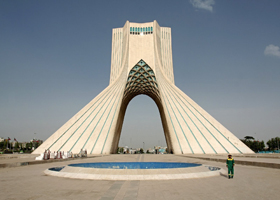

The “international community” is being redefined – Organizations like the International Monetary Fund, the World Bank and the G7 are on the decline according to Bremmer. Often considered the voice of the international community in responding to geopolitical and economic developments, the G7 for one doesn’t include any BRIC countries. A key shift is happening away from a post-World War II international community lead by the U.S. and towards new agreements and treaties that link the world in different ways. The Trans-Pacific Partnership is just one example of this, Bremmer said.
The “poisonous” relationship between China and Japan – While China and Japan both have their strongest leaders in decades, the relationship between these countries is quickly turning “poisonous” said Bremmer. As China seeks to strengthen its ties with the U.S., Japanese companies are quietly reducing their holdings and footprint in China. The U.S. could be caught in the middle.
Iran will be a hot place to invest – “Iran could be the most exciting market next year,” said Bremmer, who noted that he’s positive there will be a nuclear non-proliferation deal by summer. He said CEOs of some of the biggest companies in the world are already crafting their Iran strategies, poised to take advantage of the country’s turnaround. If things go south, however, Americans could take the blame and Iran might be inclined to look to Russia for a “third way.”
The Ukraine could pull Europe back into recession – Iran-type sanctions against Russia will have a devastating effect on banks and businesses and could tip Europe back into recession.
Canada and the U.S. will benefit – Geopolitical instability will trigger a flight to quality that will directly benefit more stable countries like the U.S. and Canada Bremmer said.
